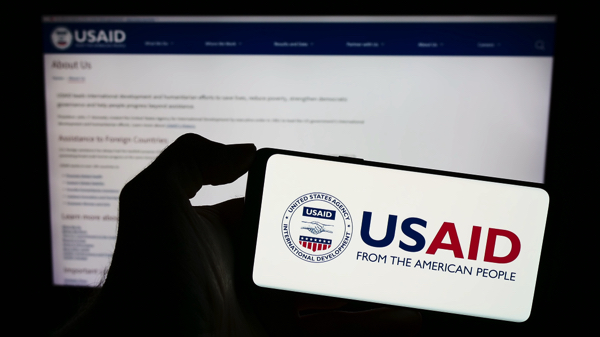AI scammers impersonate Italian defense minister to target wealthy elite
By isabelle // 2025-02-11
Tweet
Share
Copy

- Scammers used AI to clone Italian Defense Minister Guido Crosetto's voice to extort money from wealthy business leaders.
- The fraud leveraged a recent prisoner exchange with Iran, claiming funds were needed to free journalists.
- Targets included Giorgio Armani, Patrizio Bertelli, and Massimo Moratti, with Moratti falling for the scam.
- The scammers instructed victims to transfer around €1 million to a Hong Kong bank account, falsely promising reimbursement from the Bank of Italy.
- The incident highlights the growing threat of AI-powered fraud and the ease with which voices can be replicated, urging public vigilance.
How the scam worked
The fraudsters used AI to replicate Crosetto’s voice, calling prominent Italian entrepreneurs and claiming that Prime Minister Giorgia Meloni’s government needed their help to rescue kidnapped journalists. Targets were instructed to transfer around €1 million to a Hong Kong-based bank account, with promises of reimbursement from the Bank of Italy—a claim the central bank has since denied. The scam’s timing was deliberate, coming just weeks after Sala’s release from Tehran’s Evin Prison. Crosetto revealed that one imposter even introduced himself as “General Giovanni Montalbano,” a name reminiscent of a popular Italian TV series. The minister said he first learned of the scam when a prominent businessman contacted him, confused about a call from someone claiming to be Crosetto’s secretary.The rise of AI-powered fraud
This incident is not an isolated case. Advances in generative AI have made voice cloning and deepfake technology increasingly accessible, enabling criminals to execute highly convincing scams. According to the Global Anti-Scam Alliance, losses from online and phone fraud exceed $1 trillion annually, with most funds never recovered. Crosetto’s impersonation is a reminder of how vulnerable even high-profile individuals are to such schemes. “The voice of the minister was reproduced,” a defense ministry official confirmed. “It was asking for money to pay ransom for Italian journalists kidnapped in the world. It was a hoax.” As AI technology continues to evolve, experts warn that such scams will become more frequent and sophisticated. Criminals need only a few seconds of audio to replicate a voice with startling accuracy. This raises concerns about the potential for AI to be used in broader fraud campaigns, targeting not just the wealthy but also everyday consumers. Crosetto has urged the public to remain vigilant, stating on X, “I prefer to make the facts public so that no one runs the risk of falling into the trap.” Italian authorities are investigating the scam, but no suspects have been identified. The incident serves as a cautionary tale about the double-edged sword of AI. While the technology holds immense potential for innovation, its misuse poses significant risks. As Crosetto’s case demonstrates, even the most powerful individuals are not immune to the dangers of AI-powered fraud. Sources for this article include: RT.com EuroNews.com Bloomberg.com FT.comTweet
Share
Copy
Tagged Under:
glitch robots fraud scam AI hoax cyber war conspiracy robotics big government deception cyborg insanity dangerous money supply Italy inventions future science information technology computing future tech faked deepfake finance riot voice impersonation Guido Crosetto Massimo Moratti
You Might Also Like
U.S. and Russia agree to normalize ties and seek Ukraine peace
By Cassie B. // Share
The path to digital ID mandates: How social media regulation could reshape online privacy
By Willow Tohi // Share
Jewish leaders and celebrities unite against Trump’s Gaza plan in historic New York Times ad
By Belle Carter // Share
USAID funded Boko Haram slaughter of Christians in Nigeria
By News Editors // Share
The case for holding Norm Eisen accountable: Deep State’s legal mastermind exposed
By Willow Tohi // Share
Recent News
Fennel for painful periods: A clinically proven drug alternative
By newseditors // Share
Health Ranger Report: Fadi Lama identifies the West's structural failures
By kevinhughes // Share











